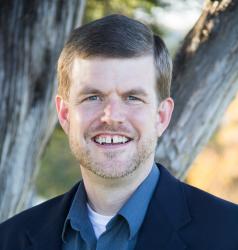I love productivity books. I’ve read all the big classics on the subject, from Stephen Covey’s Seven Habits of Highly Effective People to Cal Newport’s Deep Work. I am a devotee of David Allen’s productivity ur-text, Getting Things Done. That book, in a this-worldly sense, changed my life. Almost every day I find myself employing principles like Allen’s “two-minute rule”: If a task or “next step” is on my mind and it’ll take me less than two minutes to complete, do it now! I need to get it out of my brain so I can focus mostly on creative, long-term writing projects. One of my life’s great joys is to hold a bound copy of my latest book. But then I immediately want to start on the next one.
There is a growing, notable subgenre of books questioning the productivity mindset, too. These books don’t so much advocate nonproductivity as suggest that productivity literature leads to frustration. Popular books such as Oliver Burkeman’s Four Thousand Weeks: Time Management for Mortals tell us that the productivity genre masks our finitude. The productivity gurus badger us to keep producing things that ultimately will not satisfy. Burkeman’s book is undergirded with pop Buddhism and existentialism—philosophical grounding I find somewhat trite. Nevertheless, Burkeman puts his finger on essential questions about productivity. What is productivity for? From a philosophical perspective, how does productivity sync with our limitations and decaying bodies? One day we’ll all stop worldly production, in a very final way, at our deaths. What then?
Yet Burkeman has few answers to such questions. He just says we should accept our limits and be mindful of a certain pointlessness in much of our striving. That’s a good start, but I found better answers than Burkeman’s in Sean McGever’s book The Good News of Our Limits. I would recommend The Good News of Our Limits to any Christian reader interested in productivity. McGever argues that the basic problem with the productivity genre is not that it doesn’t adequately account for our limits. It’s that productivity authors “fail to account for theological anthropology—or to put it simply, they don’t consider what it means for human beings to be created by a Creator.” Some of our limits, like failing bodily health and bad motivations, have to do with the debilitating effects of sin. But we’re also designed as limited beings in other marvelous ways. Unlike God, we cannot possess omniscience, omnipresence, or omnipotence. Yet we are created in God’s image, which gives great dignity to our lives and vocations, whether religious or secular.
Any accurate gauge of productivity will have to account for both our God-given value and God-given limits. McGever goes so far as to call our created inadequacy a “gift,” connected to our very design by God. Christian understandings of productivity will also have to account for the fundamentally different economies of God’s Kingdom and the kingdoms of this world. Saintly figures who devote years of their lives ministering to suffering and marginal people may have little to show in their bank accounts or résumé entries, but they’re rich beyond measure in God’s estimation of a “good and faithful servant” (Matthew 25:23). Yet others who by their life circumstances engage in little this-worldly production, such as infants, the aged, or the profoundly disabled, are of infinite value in God’s eyes, too.
McGever has no quick solutions for manifesting a God-honoring, limitations-acknowledging approach to Christian productivity. But he does offer biblical guidelines and intentional limiting practices. (Readers should note that McGever is an evangelical Christian, and his thinking on such matters is shaped accordingly. But Christians of almost any confession would resonate with his approach.) One limit is “faithful practices,” particularly prayer. Some readers might think, “Well of course a Christian book recommends prayer.” But McGever particularly advises prayer as a practical way to acknowledge our measly power as compared to God’s omnipotence. Always pray first, not just when our temporal plans have failed due to our foolishness or insufficient resources. Recognize that anything we do, if it is to be of eternal significance, is going to require God’s animating power anyway. Prayer shapes our desire for real godly productivity, not for cutting corners to succeed in this life. Is our idea of “getting things done” writing a book that uses toxic rhetoric and bad-faith arguments to cause a sensation and generate cash? Or executing a business deal that ruins communities and makes the poor poorer? If so, we may have grand earthly accomplishments but little of value on our enduring résumé. “Have I been faithful?” is a question of more eternal importance than “Have I been productive?” Faithfulness hardly excludes productivity. It just puts realistic, God-honoring boundaries around productivity. Faithfulness gives productivity a transcendent purpose.
McGever ministers to young people via the parachurch organization Young Life, so he naturally thinks about productivity in terms of relationships and mentoring. This is often a blind spot for people like me who are consumed with productivity. We often see people as obstacles to the “real” work of productivity, such as writing a book. Yet how many of us can think of a parent, pastor, or other mentor who may not have been that successful in worldly terms but who nevertheless made an indelible impact on the person we are today? I can personally think of one such mentor, who struggled with a lack of numbers in his work, but his personal impact on me has been vast and enduring. How do you count productivity like that in an annual performance review? Jesus made a direct relational impact only on a small group of disciples. But was he not preeminently, eternally, productive in the divine economy?
McGever reminds us of our relational limits, too. There are only so many real “friends” (flesh-and-blood friends, not “Facebook friends”) with whom we can sustain edifying relationships. For introverts like me, the capacity for such connections is probably even lower. Studies are showing that American adults today find it more and more difficult to make and keep close friends, as compared to earlier generations. The COVID shutdowns and disruptions of recent years surely did not make it any easier to maintain consistent friendships. Thus, we should make good choices in light of our essential need for friendships, as well as our limited time and energy for them. McGever also reminds us of the value of a stable marriage and family. For most adults, there’s only one person—your spouse—about whom you can say with any reasonable confidence that you’ll be committed friends “for better or worse” and “’til death do us part.” This is part of what’s so alarming about the rampant devaluing of marriage in western societies. Undercutting marriage breaks down the most essential structure of friendship that most adults will ever enjoy. It has a unique covenantal quality that no other friendship has. Marriage also represents the God-designed structure for procreation, which ideally leads to a new level of intergenerational friendship and support with a couple’s grown children.
McGever’s final limitation is an obvious but much-needed one today: the limitation of online and streaming inputs. As McGever notes, we can’t manage time, but we can manage ourselves. We all have the same 24 hours in a day. As we seek best to employ those hours, we are fighting against a massive, insidious entertainment industry, represented by the likes of Facebook and Netflix. We should do whatever it takes to fill our days with edifying friendships, important work, and wise inputs (the Bible foremost), rather than the grievance mongering, cat videos, and salacious images accessible at all hours through the swipe of the finger. Disciplining our intake is easier said than done, however, and mere human effort usually doesn’t work. For the Christian, an active, prayerful dependence on the Holy Spirit and a vital connection with a church or parish community are essential to escape the trashy, ephemeral, and isolating media culture in which we’re all submerged.
Some readers may find McGever’s approach too breezy and practical—he is a minister to youths, after all—but he’s drawing from a deep well of work and family experience. He also possesses intellectual grounding (a Ph.D. from the University of Aberdeen) befitting his interests in religious history and theological anthropology. (Would that more academics could be so practical!) Ultimately, McGever is calling us to live, work, and worship in fuller accord with our identity as men and women created in God’s image. I can’t imagine anything more fundamentally productive than that.

